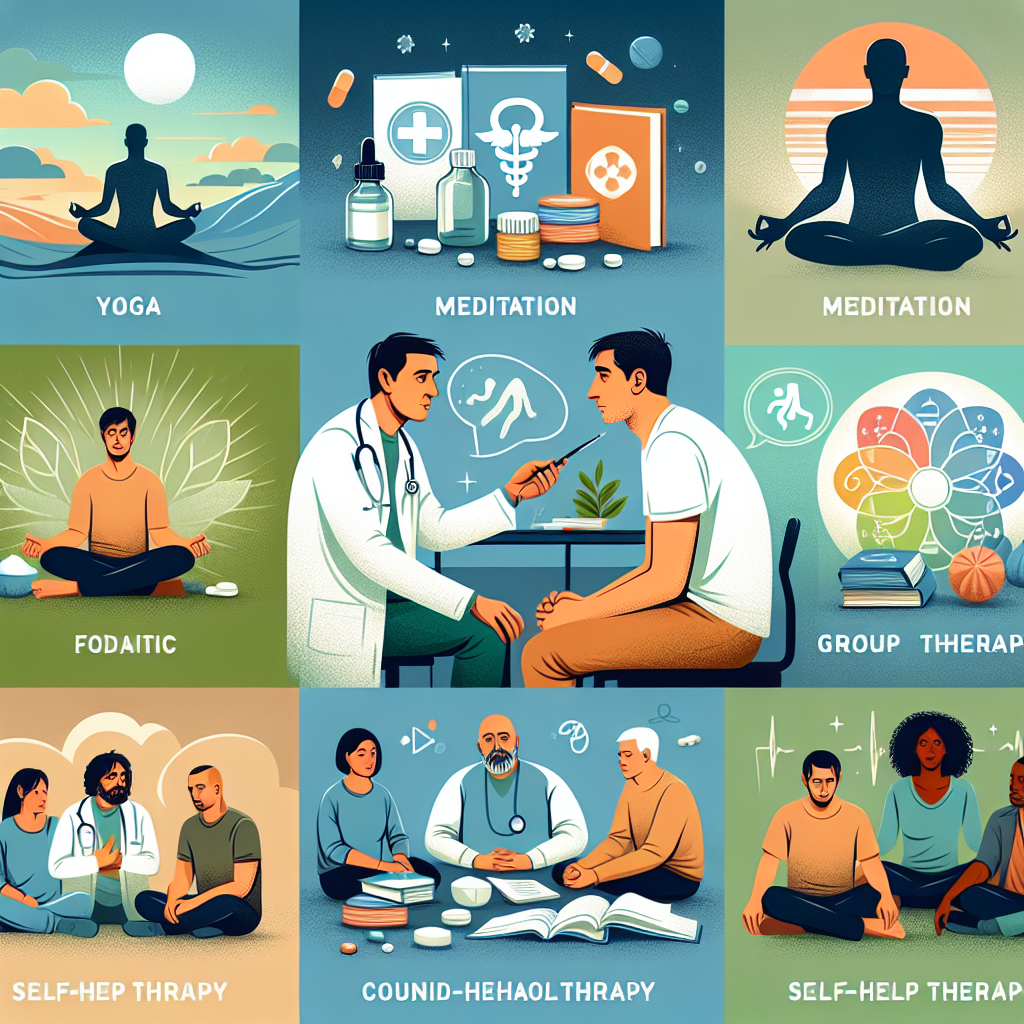Table of Contents
“Rise Stronger: Reclaiming Life Beyond Fentanyl”
Introduction

Rebuilding your life after fentanyl addiction is a challenging yet profoundly transformative journey. This process involves not only overcoming the physical dependency on the drug but also addressing the psychological, emotional, and social impacts of addiction. Recovery requires a comprehensive approach that includes medical treatment, therapy, support groups, and lifestyle changes. It is a path marked by resilience, self-discovery, and the rebuilding of relationships and personal goals. With the right support and resources, individuals can reclaim their lives, restore their health, and find new purpose and fulfillment beyond addiction.
Finding Support Systems: Building a Network for Recovery
Rebuilding your life after fentanyl addiction is a journey that requires immense courage, determination, and a robust support system. Finding the right support systems is crucial to building a network for recovery, as it provides the foundation upon which you can rebuild your life. The importance of a strong support network cannot be overstated, as it offers emotional, psychological, and sometimes even financial assistance, helping you navigate the complexities of recovery.
One of the first steps in finding support systems is to reach out to family and friends. These individuals often form the core of your support network, offering unconditional love and understanding. While it may be difficult to open up about your struggles, being honest with those closest to you can foster a sense of trust and mutual support. They can provide a listening ear, help you stay accountable, and celebrate your milestones, no matter how small they may seem.
In addition to family and friends, professional support is indispensable. Therapists and counselors who specialize in addiction recovery can offer tailored strategies to cope with cravings, manage stress, and address underlying issues that may have contributed to your addiction. Cognitive-behavioral therapy (CBT), for instance, is a highly effective approach that helps you reframe negative thought patterns and develop healthier coping mechanisms. Regular sessions with a mental health professional can provide a safe space to explore your emotions and challenges, making the recovery process more manageable.
Support groups, such as Narcotics Anonymous (NA) or SMART Recovery, offer a community of individuals who understand what you are going through. These groups provide a platform to share experiences, gain insights, and receive encouragement from others who have faced similar struggles. The sense of camaraderie and shared purpose can be incredibly motivating, helping you stay committed to your recovery goals. Moreover, hearing success stories from others can inspire hope and remind you that recovery is possible.
Another valuable resource is online support communities. In today’s digital age, numerous forums, social media groups, and websites are dedicated to addiction recovery. These platforms offer the advantage of anonymity and accessibility, allowing you to seek support at any time of day. Engaging with online communities can supplement in-person interactions, providing additional layers of support and information. However, it is essential to ensure that these online spaces are reputable and moderated to maintain a positive and constructive environment.
Healthcare providers also play a critical role in your support network. Regular check-ups with your primary care physician can help monitor your physical health, which is often compromised during addiction. They can also provide referrals to specialists, prescribe medications to manage withdrawal symptoms, and offer guidance on maintaining a healthy lifestyle. A holistic approach to recovery, addressing both mental and physical health, is vital for long-term success.
Lastly, consider engaging in activities that promote well-being and personal growth. Exercise, meditation, and hobbies can serve as healthy outlets for stress and anxiety, contributing to a balanced and fulfilling life. Volunteering or participating in community service can also provide a sense of purpose and connection, reinforcing your commitment to recovery.
In conclusion, rebuilding your life after fentanyl addiction is a multifaceted process that requires a strong and diverse support network. By reaching out to family and friends, seeking professional help, joining support groups, engaging with online communities, and maintaining regular healthcare appointments, you can create a robust foundation for your recovery journey. Remember, every step forward, no matter how small, is a victory. With the right support systems in place, you can overcome the challenges of addiction and build a brighter, healthier future.
Healthy Habits: Nutrition and Exercise for a New Beginning
Rebuilding your life after overcoming fentanyl addiction is a journey that requires immense courage, determination, and a commitment to adopting healthier habits. One of the most crucial aspects of this new beginning is focusing on nutrition and exercise, which can significantly enhance your physical and mental well-being. As you embark on this transformative path, understanding the importance of these elements and how to incorporate them into your daily routine can make a world of difference.
Firstly, nutrition plays a pivotal role in the recovery process. After enduring the physical and emotional toll of addiction, your body needs proper nourishment to heal and regain strength. A balanced diet rich in vitamins, minerals, and essential nutrients can help repair the damage caused by substance abuse. Incorporating a variety of fruits, vegetables, lean proteins, whole grains, and healthy fats into your meals can provide the necessary fuel for your body to function optimally. Additionally, staying hydrated by drinking plenty of water is essential for flushing out toxins and maintaining overall health.
Transitioning to a healthier diet may seem daunting at first, but taking small, manageable steps can make the process more achievable. Start by gradually replacing processed and sugary foods with more nutritious options. For instance, swap out soda for water or herbal tea, and choose whole fruits over sugary snacks. Meal planning and preparation can also be incredibly beneficial, as it allows you to have control over what you eat and ensures that you always have healthy options available. Moreover, seeking guidance from a nutritionist or dietitian can provide personalized advice and support tailored to your specific needs.
In addition to proper nutrition, incorporating regular exercise into your routine is equally important for rebuilding your life after addiction. Physical activity offers numerous benefits, including improved cardiovascular health, increased energy levels, and enhanced mood. Exercise stimulates the release of endorphins, which are natural mood lifters that can help combat feelings of depression and anxiety often experienced during recovery. Furthermore, engaging in physical activities can serve as a positive outlet for stress and a constructive way to channel your energy.
Finding an exercise routine that suits your interests and fitness level is key to maintaining consistency and enjoyment. Whether it’s walking, jogging, swimming, yoga, or joining a fitness class, the options are endless. Starting with moderate activities and gradually increasing the intensity can help prevent burnout and reduce the risk of injury. Additionally, setting realistic goals and tracking your progress can provide a sense of accomplishment and motivation to keep going.
As you integrate these healthy habits into your life, it’s important to remember that recovery is a continuous process. There will be challenges and setbacks along the way, but maintaining a positive mindset and seeking support from loved ones, support groups, or professionals can make a significant difference. Surrounding yourself with a supportive community can provide encouragement, accountability, and a sense of belonging, all of which are vital for long-term success.
In conclusion, rebuilding your life after fentanyl addiction is a multifaceted journey that requires dedication and perseverance. By prioritizing nutrition and exercise, you can lay a strong foundation for a healthier and more fulfilling future. Embracing these healthy habits not only aids in physical recovery but also fosters mental and emotional resilience. As you continue on this path, remember to celebrate your progress, no matter how small, and remain steadfast in your commitment to a brighter, healthier tomorrow.
Mindfulness and Meditation: Tools for Emotional Healing
Rebuilding your life after fentanyl addiction is a journey that requires immense courage, resilience, and a commitment to personal growth. One of the most powerful tools available to aid in this transformative process is the practice of mindfulness and meditation. These ancient techniques offer a pathway to emotional healing, helping individuals reconnect with themselves and the world around them in a more meaningful and compassionate way.
Mindfulness, at its core, is the practice of being fully present in the moment, aware of your thoughts, feelings, and sensations without judgment. For someone recovering from fentanyl addiction, this can be particularly beneficial. Addiction often involves a cycle of escaping from painful emotions and experiences. Mindfulness encourages you to face these emotions head-on, providing a safe space to explore and understand them. By acknowledging and accepting your feelings, you can begin to heal the emotional wounds that may have contributed to your addiction in the first place.
Meditation, a practice closely related to mindfulness, involves focusing your mind on a particular object, thought, or activity to achieve a mentally clear and emotionally calm state. Regular meditation can help reduce stress, anxiety, and depression, which are common challenges for those in recovery. Through meditation, you can develop a greater sense of inner peace and stability, making it easier to navigate the ups and downs of life without turning to substances for relief.
Incorporating mindfulness and meditation into your daily routine can be a gradual process. Start with just a few minutes each day, gradually increasing the time as you become more comfortable with the practice. You might begin with simple breathing exercises, focusing on the sensation of your breath entering and leaving your body. As you become more adept, you can explore different types of meditation, such as loving-kindness meditation, which involves sending positive thoughts and feelings to yourself and others.
One of the key benefits of mindfulness and meditation is their ability to help you develop a greater sense of self-awareness. This heightened awareness can be instrumental in identifying triggers and patterns of behavior that may lead to relapse. By recognizing these triggers early, you can take proactive steps to address them, whether through seeking support from a therapist, engaging in healthy activities, or practicing self-care.
Moreover, mindfulness and meditation can enhance your overall well-being by promoting a more balanced and positive outlook on life. As you become more attuned to the present moment, you may find that you are better able to appreciate the small joys and experiences that make life meaningful. This shift in perspective can foster a sense of gratitude and contentment, which are essential components of a fulfilling and addiction-free life.
In addition to personal practice, consider joining a mindfulness or meditation group. Being part of a community of like-minded individuals can provide valuable support and encouragement. Sharing your experiences and learning from others can deepen your practice and reinforce your commitment to recovery.
Ultimately, rebuilding your life after fentanyl addiction is a multifaceted process that involves addressing physical, emotional, and spiritual aspects of your well-being. Mindfulness and meditation offer powerful tools for emotional healing, helping you cultivate a deeper connection with yourself and the world around you. By embracing these practices, you can create a solid foundation for a healthier, more fulfilling life, free from the grip of addiction.
Career and Education: Rebuilding Professional and Personal Goals
Rebuilding your life after fentanyl addiction is a journey that requires immense courage, determination, and a clear vision for the future. One of the most critical aspects of this journey is re-establishing your career and educational goals. These elements not only provide a sense of purpose but also play a significant role in your long-term recovery and personal growth. As you embark on this path, it is essential to approach it with a strategic mindset, focusing on both short-term and long-term objectives.
Initially, it is important to assess where you currently stand in terms of your professional and educational background. This self-assessment will help you identify your strengths, weaknesses, and areas that need improvement. For some, this might mean returning to a previous career path, while for others, it could involve exploring new opportunities that align better with their current interests and values. Regardless of the direction you choose, setting realistic and achievable goals is crucial. Start by outlining small, manageable steps that will gradually lead you to your larger objectives.
Transitioning back into the workforce or educational environment can be daunting, especially after a period of absence due to addiction. However, it is important to remember that many people have successfully navigated this path before you, and their experiences can serve as valuable sources of inspiration and guidance. One effective strategy is to seek out support networks, such as career counseling services, mentorship programs, or support groups specifically designed for individuals in recovery. These resources can provide practical advice, emotional support, and a sense of community, all of which are invaluable during this transitional phase.
In addition to external support, cultivating a positive mindset is essential. Embrace the idea that your past does not define your future and that every step you take towards rebuilding your career and education is a testament to your resilience and strength. It is also important to practice self-compassion and recognize that setbacks are a natural part of the recovery process. Instead of viewing them as failures, consider them as opportunities for growth and learning.
As you progress in your journey, continuous learning and skill development should be a priority. This could involve enrolling in courses, attending workshops, or obtaining certifications that enhance your qualifications and make you more competitive in the job market. Additionally, staying updated with industry trends and advancements can help you identify emerging opportunities and adapt to changing demands. By investing in your education and professional development, you not only increase your employability but also build a foundation for long-term success and fulfillment.
Networking is another critical component of rebuilding your career. Establishing connections with professionals in your field can open doors to new opportunities and provide valuable insights into industry practices. Attend networking events, join professional associations, and leverage online platforms like LinkedIn to connect with like-minded individuals. Building a strong professional network can also offer a sense of belonging and support, which is particularly important during the recovery process.
Ultimately, rebuilding your career and educational goals after fentanyl addiction is a multifaceted endeavor that requires patience, perseverance, and a proactive approach. By setting clear goals, seeking support, maintaining a positive mindset, continuously learning, and networking effectively, you can create a fulfilling and successful future. Remember that every step you take, no matter how small, brings you closer to achieving your dreams and reclaiming control over your life. Your journey is a testament to your strength and determination, and with each passing day, you are building a brighter and more promising future for yourself.
Q&A
1. **What are the first steps to take after deciding to quit fentanyl?**
– Seek medical assistance for a safe detox, join a support group, and create a structured plan for recovery.
2. **How can therapy help in rebuilding life after fentanyl addiction?**
– Therapy can address underlying issues, provide coping strategies, and support mental health recovery.
3. **What role does a support network play in recovery?**
– A support network offers emotional support, accountability, and encouragement throughout the recovery process.
4. **How can one maintain long-term sobriety after fentanyl addiction?**
– Engage in ongoing therapy, participate in support groups, develop healthy habits, and avoid triggers.
Conclusion
Rebuilding your life after fentanyl addiction requires a multifaceted approach that includes medical treatment, psychological support, lifestyle changes, and a strong support network. It involves addressing the physical dependency through detoxification and medication-assisted treatment, while also tackling the underlying psychological issues through therapy and counseling. Establishing a healthy routine, setting realistic goals, and reconnecting with supportive family and friends are crucial steps. Long-term recovery is a continuous process that demands commitment, resilience, and the willingness to seek help when needed. With the right resources and support, it is possible to rebuild a fulfilling and healthy life.



